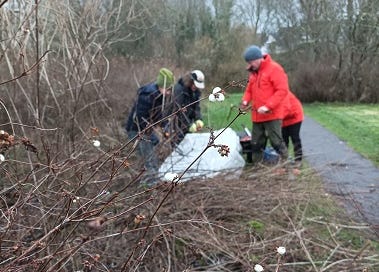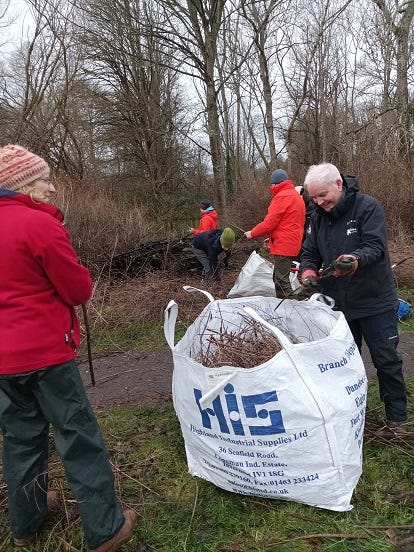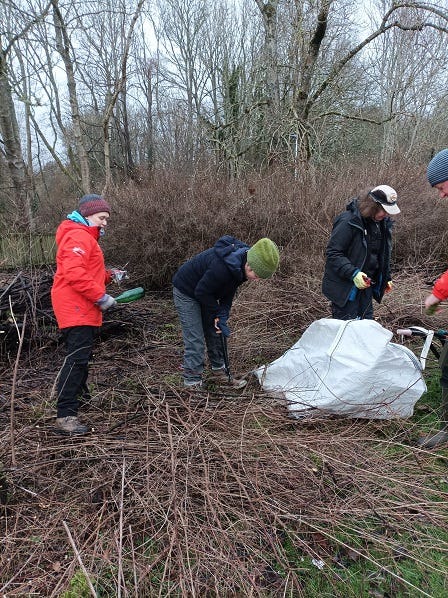Tackling Invasive Snowberry
The North Ranger Team's Pre-Christmas Initiative in Dingwall Woods
In the town of Dingwall, Ross-shire, our dedicated team of High Life Highland Countryside Rangers gathered for their year-end meeting in 2023. With the festive season approaching, they chose to embark on one last environmental project in the local woodlands. Their mission was to address the growing concern of snowberry bushes, an invasive species that poses a threat to Scotland's native flora.
The Invasive Snowberry in Scotland
Snowberry (Symphoricarpos albus), native to North America, was introduced to the United Kingdom, including Scotland, in the early 19th century. Initially, it was favored for its ornamental value and its ability to form dense hedges. However, what was once a garden favorite gradually turned into an ecological challenge.
The Problem with Snowberry
In Scotland's woodlands, snowberry's invasive nature became apparent as it began to outcompete native plants. The bush's aggressive growth patterns and dense foliage create a canopy that stifles the growth of understory vegetation. This is particularly concerning for species such as bluebells and primroses, which are integral to the Scottish woodland ecosystem. The overshadowing caused by snowberry can lead to a decrease in biodiversity, impacting not just plant life but also the fauna that depends on native species for food and shelter.
The Ranger Team's Year End Blitz
Recognising this local threat, the North Ranger team decided to take action at the end of their meeting. Their project involved a meticulous clearing of snowberry bushes. This task is challenging, as snowberry is known for its resilience and can quickly regrow from remnants of roots left in the soil. The team's approach was systematic, ensuring that as much of the plant as possible was removed to prevent regrowth.
There has been an ever growing awareness and response to invasive species in Scotland over the last decade. Such initiatives are crucial in preserving the natural balance of ecosystems, especially in areas of significant ecological importance. By removing invasive species like snowberry, native plants have a far better chance to recover and thrive, thereby supporting a more diverse range of wildlife.
The work in Dingwall last week is a small dent in the much larger battle against invasive species in Scotland. Ongoing monitoring and management are essential to ensure that areas cleared of snowberry remain free of this invasive bush. Public education about the impact of non-native plants and responsible gardening practices are also vital components of this conservation effort.
This pre-Christmas undertaking by the team in Dingwall is not just a seasonal gesture but a commitment to preserving Scotland's natural heritage. It serves as a reminder of the delicate balance within our ecosystems and the responsibility we all share in maintaining it.






